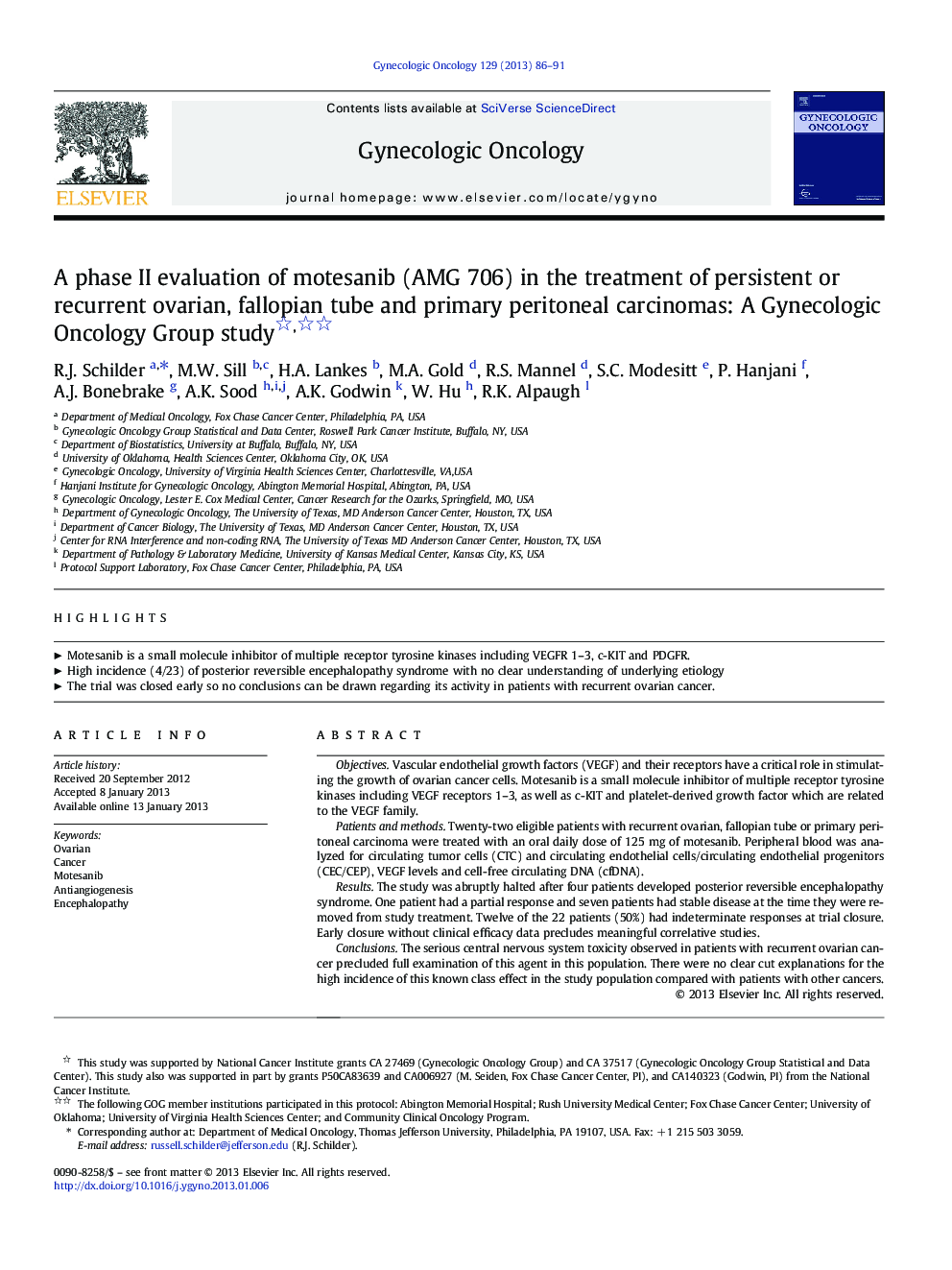| Article ID | Journal | Published Year | Pages | File Type |
|---|---|---|---|---|
| 6183797 | Gynecologic Oncology | 2013 | 6 Pages |
ObjectivesVascular endothelial growth factors (VEGF) and their receptors have a critical role in stimulating the growth of ovarian cancer cells. Motesanib is a small molecule inhibitor of multiple receptor tyrosine kinases including VEGF receptors 1-3, as well as c-KIT and platelet-derived growth factor which are related to the VEGF family.Patients and methodsTwenty-two eligible patients with recurrent ovarian, fallopian tube or primary peritoneal carcinoma were treated with an oral daily dose of 125Â mg of motesanib. Peripheral blood was analyzed for circulating tumor cells (CTC) and circulating endothelial cells/circulating endothelial progenitors (CEC/CEP), VEGF levels and cell-free circulating DNA (cfDNA).ResultsThe study was abruptly halted after four patients developed posterior reversible encephalopathy syndrome. One patient had a partial response and seven patients had stable disease at the time they were removed from study treatment. Twelve of the 22 patients (50%) had indeterminate responses at trial closure. Early closure without clinical efficacy data precludes meaningful correlative studies.ConclusionsThe serious central nervous system toxicity observed in patients with recurrent ovarian cancer precluded full examination of this agent in this population. There were no clear cut explanations for the high incidence of this known class effect in the study population compared with patients with other cancers.
⺠Motesanib is a small molecule inhibitor of multiple receptor tyrosine kinases including VEGFR 1-3, c-KIT and PDGFR. ⺠High incidence (4/23) of posterior reversible encephalopathy syndrome with no clear understanding of underlying etiology ⺠The trial was closed early so no conclusions can be drawn regarding its activity in patients with recurrent ovarian cancer.
